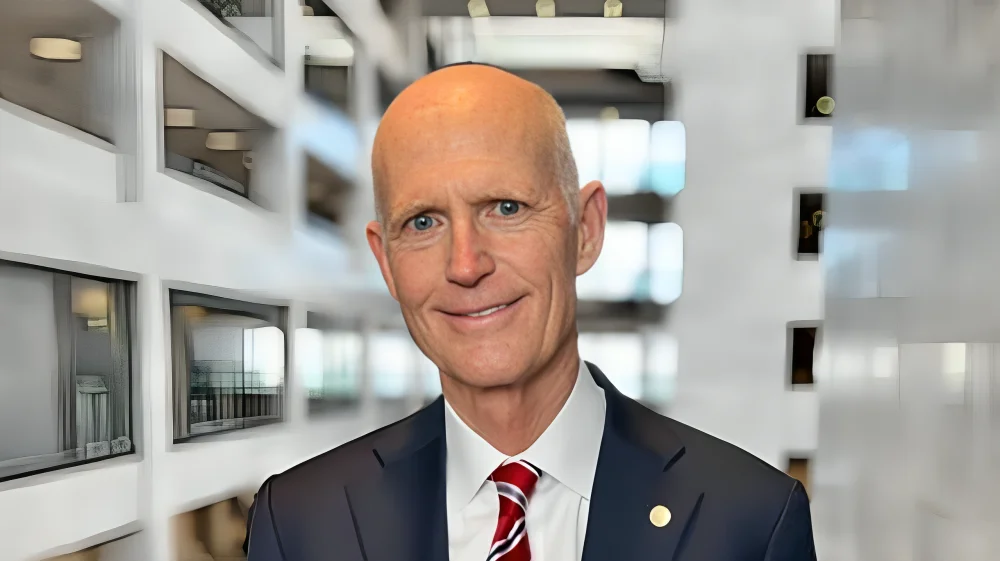Senator Rick Scott, chairman of the U.S. Senate Special Committee on Aging, presided over a hearing focused on reauthorizing the Older Americans Act (OAA) and its impact on Americans living with aging-related diseases such as Alzheimer’s and Parkinson’s. The hearing, titled “Renewing Our Commitment: How the Older Americans Act Uplifts Families Living with Aging-Related Diseases,” featured testimony from individuals who have been directly affected by these conditions and those involved in caregiving.
Witnesses included Erick Montealegre, a family caregiver from Broward County, Florida; Stephen Sappington, a Parkinson’s advocate from Harford County, Maryland; and Duana Patton, president of USAging and chief executive officer of the Ohio District 5 Area Agency in Ontario, Ohio. They discussed how programs funded through the OAA have enabled millions of older Americans to maintain dignity and independence.
During his opening remarks, Senator Scott highlighted several examples of how OAA-funded services make a difference across the country. He said:
“The U.S. Senate Special Committee on Aging will now come to order.
Today, we are once again talking about an incredibly important issue that affects millions of American seniors and their families: the reauthorization of the Older Americans Act (OAA) and its impact on seniors with age-related conditions like Alzheimer’s and Parkinson’s.
The OAA is one of the most quietly impactful laws this country has ever passed.
It’s the reason a senior in Naples gets a warm, home-delivered meal through Meals on Wheels.
It’s the reason a daughter in Pennsylvania can take a few hours of respite after spending the night caring for her father with Alzheimer’s.
It’s the reason a man in West Virginia with Parkinson’s can still get to his physical therapy appointment using transportation services.
And it’s the reason senior centers across the country can help coordinate all of these things to support older Americans and their families.
These are just a few examples of the faces of this law. When we talk about reauthorization, we are talking about protecting the people who raised us, served our country, built our communities, and now simply need a bit of our support.
Across the United States, more than 7 million older Americans are living with Alzheimer’s disease, including more than 580,000 in my home state of Florida. Alzheimer’s steals memories and independence, often turning spouses and children into full-time caregivers overnight.
Nearly one million Americans live with Parkinson’s disease, which slowly robs people of movement, balance, and speech but not of their determination or dignity. Each year, about 90,000 new cases are diagnosed, and behind each one is a family learning to adjust, adapt, and persevere.
Behind each of these numbers is a caregiver—a husband, a wife, a son or daughter—providing care around the clock.
More than 11 million Americans provide unpaid care for people living with Alzheimer’s or another dementia. Together they give 19.2 billion hours of informal assistance valued at $413 billion—and that doesn’t even include caregivers for Parkinson’s ALS or other chronic diseases of aging.
These are people holding down jobs raising children and still finding time to feed bathe and comfort loved ones who depend on them. They do it out love—and they deserve our support.
That is why the Older Americans Act is so vital. It works because it’s not big government approach—it directs resources local communities neighbors helping neighbors.
In Florida I have seen impact firsthand through Area Agencies on Aging senior centers volunteers deliver meals install ramps check seniors live alone
For families living with Alzheimer’s Parkinson's other age-related diseases these programs not luxuries—they’re lifelines hot meal safe home few hours rest caregiver ride keeps someone connected community
When we talk about reauthorizing Older Americans Act not just debating policy renewing commitment America seniors
A commitment that United States stand by parents grandparents age when disease disability strikes families will not face alone
Every service made possible by law represents compassion made real
That is what government should do empower communities care one another let direct resources meet local needs because understand communities far better than anyone Washington does
I have said before say again Our seniors spent lives building serving country bill way ensure continue supported respected valued
I am proud be leading reauthorization Older Americans Act year Ranking Member Gillibrand HELP Committee Chairman Cassidy Ranking Member Sanders
I urge all colleagues support important legislation so continue honor protect care America seniors families stand beside them every day.”
The committee addressed both current challenges faced by those affected by neurodegenerative diseases as well as strategies for continuing critical services provided under existing federal law.







